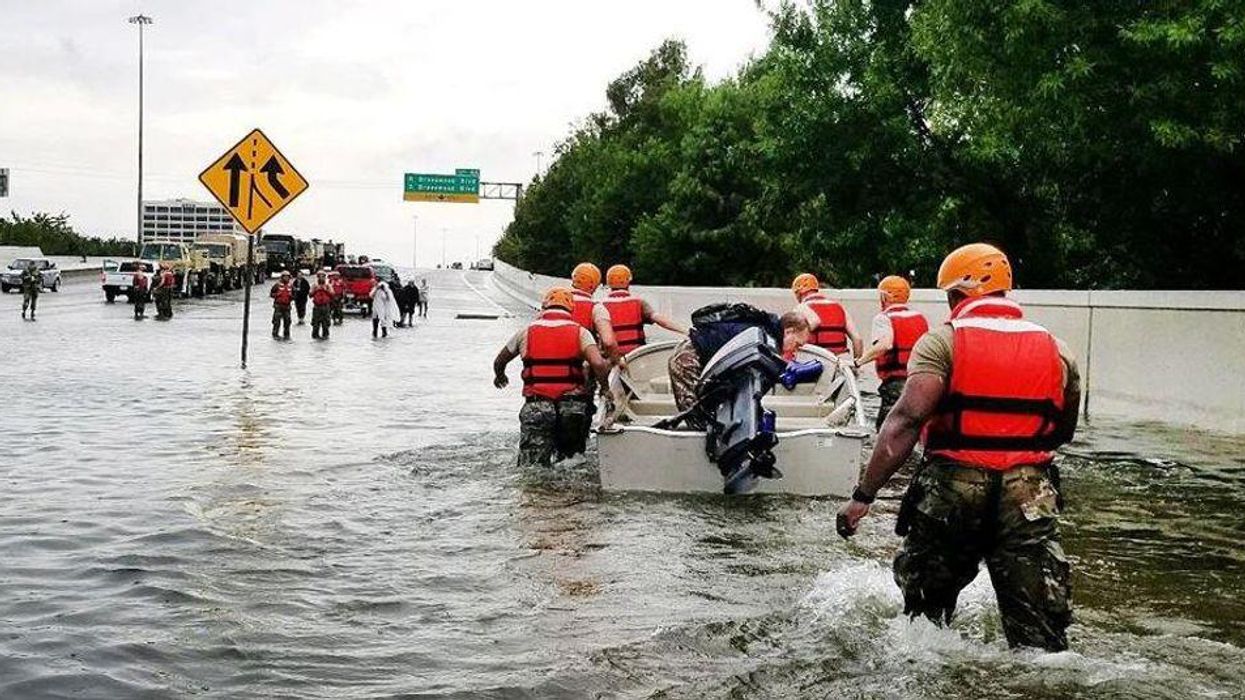A new report explains how America's fastest-growing cities are also at risk for the greatest climate impacts.
In a brief overview of the report, Axios' Alex Fitzpatrick and Erin Davis highlighted that between 1991 and 2020, a total of 9 out of 10 of the United States' fastest-growing metropolitan cities have seen distinct increases in the number of dangerously hot days.
Per the writers, those days are described as ones where there were record-breaking temperatures.
READ MORE: 'A resounding victory': Court rules Exxon must stand trial for lying to the public about climate change
The top ten cities listed in the report are: Las Vegas, Nev., Austin, Texas, Raleigh, N.C., Bend, Ore., Boise, Idaho, Bozeman, Mont., Fayetteville, Ark., Fort Myers, Fla., McAllen, Texas, and Prescott, Ariz.
Fitzpatrick and Davis also explained why the report raises real concerns. "These long-term population trends will strain cities' water supplies, power grids, and other utilities, and put a lot of Americans at risk of heat-related health issues," they wrote.
According to the writers' breakdown of the numbers:
"Las Vegas, Austin, and Raleigh grew the fastest between 1991-2020, and have had increases in 'very hot' days of 115%, 553%, and 59%, respectively," they wrote. "McAllen, Texas, has seen a staggering 724% hike in 'very hot' days, while its population grew by 118%. Fayetteville, Arkansas, is the only one of the 10 fastest-growing cities that got cooler, with 33% fewer 'very hot' days."
READ MORE: 'Climate endgame': Scientists call for studies on 'catastrophic' scenarios — including human extinction
To combat record-breaking heat days, cities are taking precautions by employing chief heat officers and planning to incorporate "cool corridors" over the course of the next 10 years.
The writers explained what the demographical breakdown suggests as far as Americans' awareness of what is going on. "This data is a sign that extreme heat isn't yet factoring into people's decisions about where to live or raise their families, despite the risks that high temperatures can bring," they wrote.
READ MORE: Marjorie Taylor Greene sums up the GOP's cognitive dissonance on climate change in a single tweet


